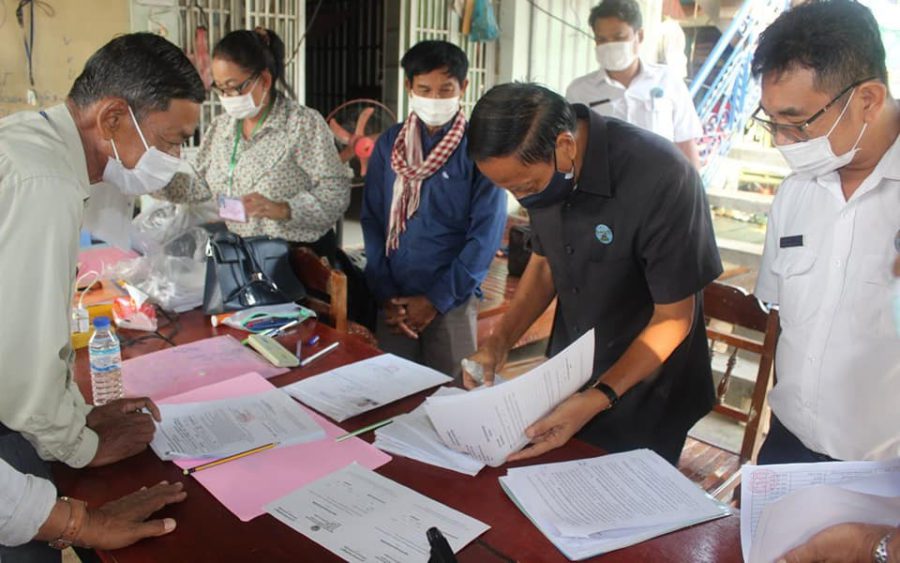With a little over 90 days to the commune elections, political parties began registering candidates on Friday to run in the 1,652 communes across the country.
The National Election Committee kicked off a three-day registration process for political parties to nominate candidates for the June 5 commune election. The 1,652 communes will have 11,622 councilors, with tens of thousands of candidates — includings reserves — registered this weekend.
The 2017 commune election saw the opposition CNRP perform better than any other opposition party before, winning 489 commune chief positions and 5,007 councilors across the country. The party was dissolved months later by the Supreme Court for allegedly orchestrating a color revolution in the country.
Hang Puthea, a spokesperson for the NEC, said that 10 political parties had started submitting candidates for the election, though officials would have to assess all the nomination papers to ensure they were compliant with the regulations.
Puthea added that if there were complaints with the election process, they always came from “one side.”
“The voices about this and that are coming from one side only. So, the NEC will not accept those to be under its jurisdiction,” he said.
The NEC was bipartisan — with equal CPP- and CNRP-nominated members and one neutral member — till 2017 when the CNRP members resigned, leaving a CPP-dominated election body.
Parties and candidates were seen posting photos on social media showing members handing over documents to commune election offices across the country.
The Cambodian People’s Party holds all but one commune chief position in the country and will enter the election as the clear favorite. Sok Eysan, a party spokesperson, said the party was registering more than 28,000 candidates, including a little over 7,000 women, adding that the party was nominating more young candidates this time.
He said the party would have the most votes but wouldn’t speculate on how many councilors the CPP would win.
“We are the one who does, and serves the people directly for the benefit of the people. So we believe that people will have confidence in the CPP’s leadership,” Eysan said.
Smaller parties said they were facing issues organizing their nomination efforts, with some alleging that candidates were facing threats and intimidation to not run.
Ou Chanrath, who founded the Cambodia Reform Party, said they were aiming to register candidates in only 10 percent of communes, which would be around 170 constituencies. He said the newly formed party was running short on time, was having a difficult time finding candidates, some of whom were facing threats.
He said early plans to run in 30 to 40 Siem Reap communes fell through and the party is only registering in 10 communes now.
“In the beginning, we could have had more, but now since there is some competition and persuasion from the ruling party … and some places they are facing threats and intimidation,” Chanrath said.
There are around six CNRP offshoot parties vying for the dissolved opposition party’s voter base.
“If we still have threats causing difficulty at the local level. … It will make the election become broken and will not yield a better result and will affect the will of the voters,” he said.
Another CNRP-linked party is the Cambodia Nation Love Party. The party will contest in 300 communes across the country and will not field candidates in the smaller provinces of Ratanakiri, Mondulkiri, Stung Treng and Pailin, said party deputy president Kang Kim Hak.
His candidates were also being intimidated by local officials to not run for the party, Kim Hak said, but was still hopeful of winning commune chief positions.
“Cambodia Nation Love Party is optimistic that we will gain the council members within the communes we have registered in. We also expected to gain at least 20 commune [chief] seats,” he said.













